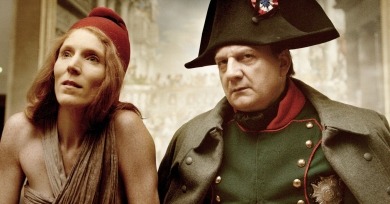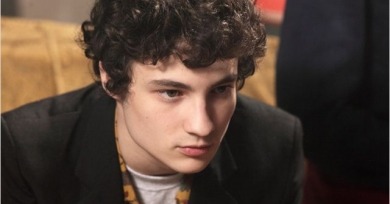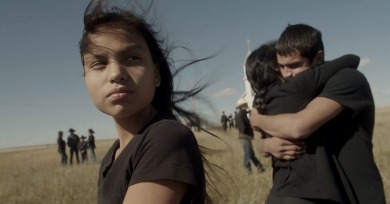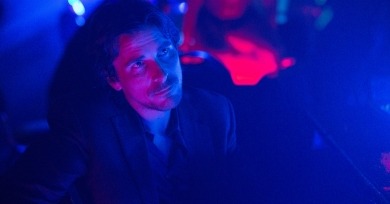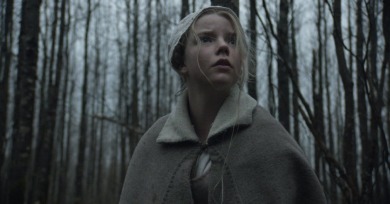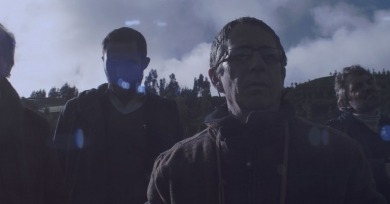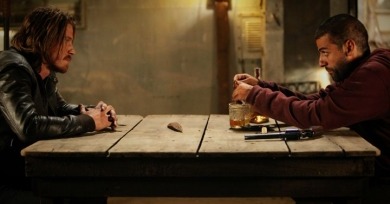Reviews
The force of the film’s spare simplicity here reminds of the similarly devastating No Home Movie—artists of the caliber of Tsai or Chantal Akerman need no tricks to move an audience, only honesty and fearlessness.
Where Russian Ark deliberately decontextualized its various vignettes, Francofonia is generous almost to a fault with exposition, tracing the development of the German occupation in a leisurely manner.
This is a film of unspeakable emotions, not platitudes; of how life and death can instill a room with meaning, not the lessons we learn from pain and loss.
First love is always critical, especially in the movies, but few are the scenarists like Desplechin who plumb it deeply enough to truly turn over all the minute pleasures and pains to find how thoroughly they shape a person.
First-time feature director Zhao resists courting our sympathy by presenting the family life as squalid, though many Pine Ridge families live without heating, clean water, or sanitation.
I will never understand those hostile responses to Malick, which seem determined to hold the line so that American narrative cinema will not be overrun by avant-garde abstraction, as though there was a flotilla of directors making experimental films on this scale instead of literally just one guy.
The miracle of the cinema of Apichatpong Weerasethakul—certainly among our greatest living filmmakers—is that he has used film to allow us to see through his eyes: maybe the highest compliment one can pay to a maker of moving images.
It’s like a cautionary bedtime story told to seventeenth-century American tots by cruel parents tucking them in at night as the wind howls outside the door.
Abound with lush, multilayered imagery shot in black-and-white super 35, Embrace of the Serpent subverts time and space while mostly staying grounded in the primordial world of the Amazon jungle.
The main characters move inexorably, helplessly toward disillusionment and alienation even as they seem to be always standing in more or less the same spot: at the edge of a precipice.
Even those who reject their work on the grounds of temperament (snarky), ideology (right-leaning), or repetitiveness (guilty as charged) must concede the sheer, bristling cleverness of their choices as writers and directors.
When the camera slowly floats through communal areas, its relentless advance suggests menace; in close-ups the priests are pinned down with such entomological remorselessness that they nearly squirm.
It is as niche a production as you will see, bound to attract a handful of true believers and a good bit of eye-rolling opprobrium, in part because it is directly concerned with hetero white male angst, which is not precisely the flavor of the month.
His cinema is now one where only simple glances or gestures are necessary to convey multitudes. This kind of description has been applied to many filmmakers, but few directors are as pinpoint accurate as Garrel.

